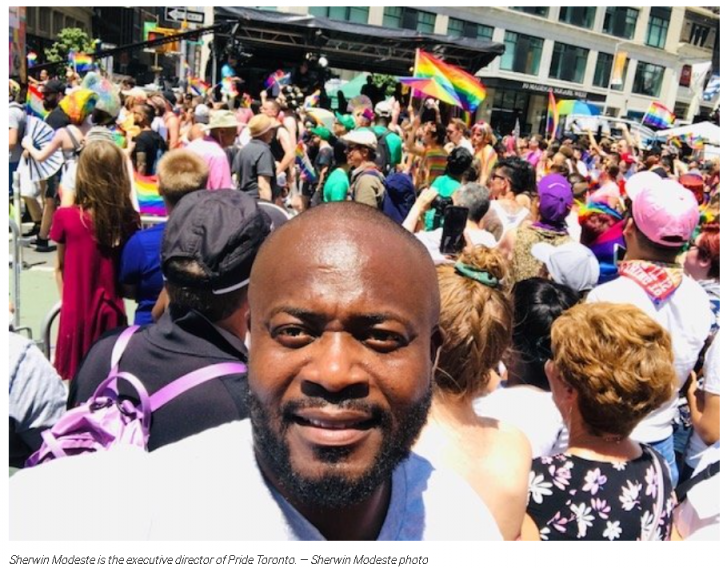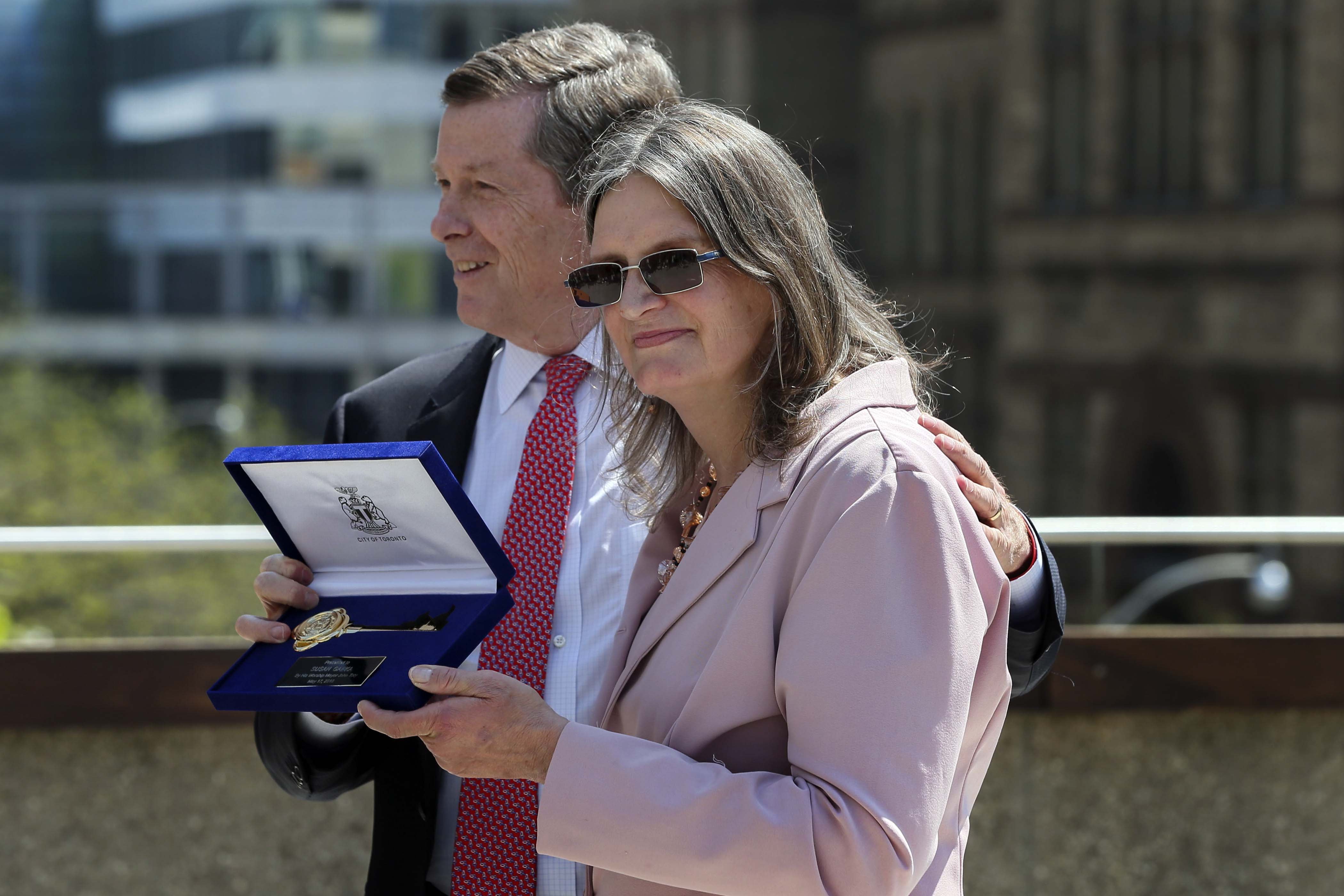Many hard hit by loss of jobs, social interactions: Pride executive director
Ginsburg, a 10-month-old black lab/husky mix, has changed Kellum Jaymes’ life for the better.
That positive turnaround began in the fall, when the 28-year-old downtown Toronto resident and member of the LGBTQ2S+ community, rescued the pooch alongside their partner.
“It was the biggest game changer because we were forced outside and it was something like that which made us realize how much we both needed to be outside and connect with people,” Jaymes said. “And when you have a dog, you’re forced to do that because puppies want to sniff everything and meet everyone.”
But before Ginsburg came into Jaymes’ world, living in the COVID-19 pandemic was challenging.
Early on, Jaymes sometimes went weeks without talking to anyone but their work colleagues. Most of their friends lost their jobs and moved away from the city to try and make ends meet elsewhere.
“You go from seeing people every week, every other day sometimes to seeing them every other month on a Zoom call, potentially,” Jaymes said.
“That kind of connection that you have with people who are your friends … it’s really important and it hasn’t really been happening a whole lot.”
Overall, the pandemic’s impact on the city’s LGBTQ2S+ community has been severe, said Sherwin Modeste, executive director of Pride Toronto.

First, the community has seen a spike in job losses as a lot of its members work in hard-hit industries like hospitality, tourism and entertainment.
But also, the feeling of family and togetherness from physically being in The Village neighbourhood has been missing from their lives — and with the second pandemic-era Pride Month here, that loss is being amplified, Modeste said.
“As a result, it has put people into sort of their own prisons,” he said. “There’s a lot of folks who look forward to Pride. It’s their opportunity to just be their authentic self; and two years in a row, not having that has definitely pushed us back and forced individuals into a place where they don’t want to be.”
With no in-person Pride Parade again this year, Pride Toronto has turned to the virtual world for programming, although some in-person events like art exhibits will take place. The organization has created a “Pride Guide” to help anyone who is interested to find an event to take part in, as this year’s theme is community, education and celebration, Modeste added.
As Pride Month goes on, advocates want allies to know the city’s LGBTQ2S+ community can thrive post-pandemic with their help.

Right now, there’s a lot of worry and fear about what life after COVID-19 will look like, said Susan Gapka, a founding member and chair of the Toronto Trans Coalition Project.
“The mental health of many people is going to be impacted,” she said. “(But) we’re a remarkably resilient group of people … we’re going to build up some resilience through this.”
As a start, allies should support organizations that look after the LGBTQ2S+ community, said Carl Kannegiesser, manager of community engaged food programs at The 519.
“Support queer and trans organizations that support our queer and trans communities with volunteer time, financially, et cetera,” Kannegiesser said. “And recognize why these organizations exist and why folks might feel comfortable coming here as opposed to somewhere else offering similar services, and the necessity to have these spaces for folks in our community to be able to turn to.”
Looking ahead, Modeste wants to see more help geared toward LGBTQ2S+ businesses and local queer artists.
“There’s also going to be a need for more mental health and emotional supports, and financial supports,” he said. “Once you received a vaccine, that does not mean the impact of COVID ends.”
As for Jaymes, allies need to “shut up and listen.”
“There are so many people who do the jobs that are necessary for a city to run who are a part of the LGBTQ2S+ community, and they don’t just have ideas, they have lived experiences on how things can be made better,” they said.
“Allies just need to shut up and listen, and they need to make space for people to come forward, and they need to make a safe space for that.”
Article From: Toronto.com
Author: AARON D’ANDREA

